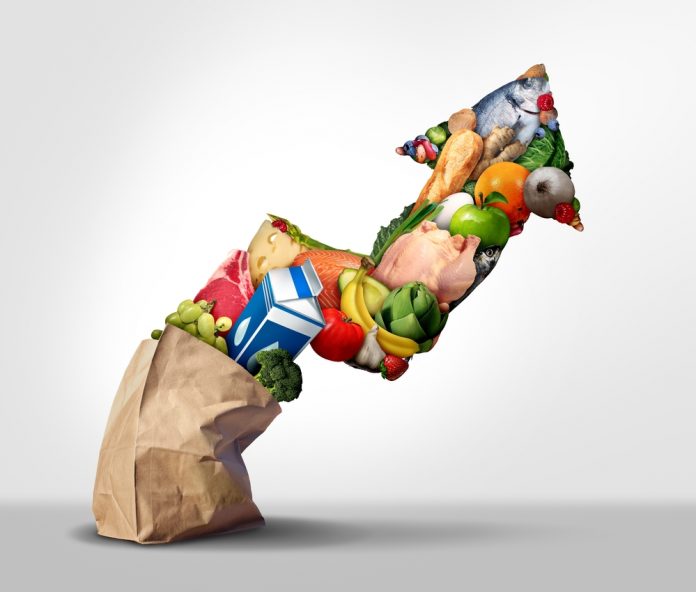The CEOs of Woolworths and Coles faced the Senate Select Committee on Supermarket Prices on Tuesday, with each leader presenting an opening statement before addressing questions from senators relating to their pricing practices amid rising profits.
Woolworths
Woolworths Group CEO Brad Banducci used his opening statement to welcome the opportunity to help the Committee understand the key drivers behind grocery inflation. He noted the tumultuous five years of covid-related disruption, followed by rising interest rates and a period of sharply elevated inflation.
“Throughout this recent inflationary period, we have taken, and continue to take, steps to provide affordable grocery products for all Australians,” he said.
“These include holding our Own Brand Products at Everyday Low Prices across pantry essentials; compelling Weekly Specials; a ‘Best Unit Price’ search filter on our digital platform; and donating more than 34 million meals to our food rescue partners in the 2023 Financial Year.”
Mr Banducci spoke of the “highly competitive, efficient and innovative” nature of the Australian grocery sector and cited the ACCC’s 2008 determination that the industry was “workably competitive” adding that it was now even more so.
“In this context, it has never been more important to be price competitive – it is critical in trying to win our customers’ shopping basket, which we need to do on a daily and weekly basis,” he said.
Mr Banducci said that grocery inflation is real and has been “substantially driven” by cost increases from global consumer goods suppliers, and cyclical impacts in domestic fresh food markets.
“It is important to note that our top 100 suppliers have driven over 60 per cent of our overall grocery inflation,” he said. “But I am pleased to say grocery inflation is falling and we all need to continue to work hard to ensure this continues.”
Coles
Coles CEO Leah Weckert spoke about the role of Coles in the Australian community and economy, and emphasised the importance of listening to its customers.
“We know many of our customers are dealing with the challenges of rising cost of living right now,” she said. “What we can do and what we do, is give customers the best value possible on their grocery bill, while balancing this with paying our suppliers fairly and reinvesting in our business to keep it efficient.”
She said Coles is committed to providing “a choice of quality products across a range of value propositions”.
“This is something we remain very focused on because we know if we don’t, customers have many other alternatives from which to purchase their food and groceries.”
Touching on supplier relations, Ms Weckert said “we don’t always get it right but all our procedures seek to ensure fair and sustainable relationships”.
“We value our supplier relationships and work hard to interact in a fair, honest and transparent manner,” she said. “If a supplier does have a concern, not only do we have confidential robust internal mechanisms, but we are bound by the Food and Grocery Code of Conduct which has alternative complaint mechanisms and is enforced by the ACCC.”
She acknowledged the concern that has been raised by the farming sector – particularly the horticulture sector around price transparency – and said Coles would be “very willing to be part of a solution that would involve greater transparency for fresh produce growers”.
Addressing profits made by the business, Ms Weckert said Coles makes $2.60 in profit for every $100 spent in its stores.
“Compared to many other industries – this is a very small margin,” she said. “This margin has remained consistent over the last five years, it did not increase with the rise in inflation. And, it is consistent with profit margins made by supermarkets overseas.”
Other appearances
Mr Banducci and Ms Weckert’s are not the only supermarket leaders to face the Senate Committee, with ALDI and Metcash CEOs both appearing last week.
ALDI Australia’s CEO Anna McGrath noted that its competitors (namely, Coles and Woolworths) lower their prices when they open a store in the same market. She also told the inquiry that ALDI would support changes that would make price changes and pricing decisions clearer to customers, and strengthening the Food and Grocery Code of Conduct.
Evidence from Metcash CEO Grant Ramage focused on “land banking” by Coles and Woolworths. He told the inquiry that the market dominance of the two major retailers enables them to engage in such anticompetitive behaviour.
The Senate will continue to hear from experts and business leaders, and present a final report by 7 May 2024.
Shoppers stressed
As the inquiry continues, financial comparison site Finder has released research showing that Australians are increasingly struggling to afford their groceries.
Finder calculated the cost of a basket of 23 goods, with average prices from 2022 and 2024, using data from Woolworths and Coles. Across the basket of goods, shoppers are now paying around $406 compared to $361 in 2022 – that’s an average increase on this basket of over 12%.
These increases, across a variety of grocery categories, dwarf the roughly eight per cent average wage growth across Australia, leaving many struggling to keep up.
“Rising costs are putting pressure on household budgets, which are being stretched thin,” said Graham Cooke, Head of Consumer Research at Finder.
The number of Australians who report their grocery bill is one of their major financial stressors has doubled over the past four years (40 per cent, up from 19 per cent), according to Finder’s research.




